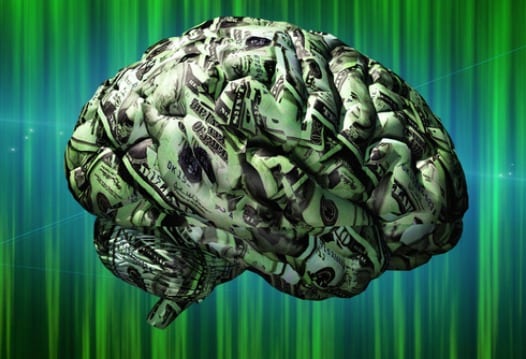Researchers: Psychology of Debt Tells Us about Ourselves
Every year, American universities confer more than 3,000 Ph.D.s in psychology. Ever wonder what all those pointy headed academics do with their time? Well, most of their efforts go into studying the rest of us — what makes us tick, how we live, why we do the things we do.
Lately, no doubt because fallout from the Great Recession challenges us all in some way, a host of post-doctoral researchers began examining the nature and psychology of debt and the economic underpinnings of our lives.
It turns out that studying the psychology of debt brings in a wide range of topics, and money — and the lack of it and the owing of it — affects us in many ways.
More Debt Equals More Depression, Fewer Wedding Bells
The University of Wisconsin’s Lawrence M. Berger published a paper in October 2012 entitled, “Household Debt and Adult Depressive Symptoms.” His findings: short-term household debt — mainly credit card debt and overdue bills — is positively associated with “greater depression and stress, declining quality of marital relations and parenting behavior, and adverse child outcomes.”
Guess it took an impressive study to quantify what most of us would assume is obvious.
Fenaba R. Addo, Ph.D., another postdoctoral fellow at Wisconsin-Madison, recently published “Debt, Cohabitation, and Marital Timing in Young Adulthood.” The results of her findings suggest that “the accumulation of credit card debt is far less of a barrier to those entering into cohabitating unions than marital ones; education loan debt negatively impacts the entrance into marital unions, but only for women; [and] women whose credit debt exceeds their predicted earnings are least likely to transition into marriage.”
Who knew?
People Making Bad Debt Decisions
Dr. Moty Amar of the Ono Academic College in Israel teamed up with several colleagues from Duke University, Washington University in St. Louis, and the University of Michigan for a study they published in the Journal of Marketing Research entitled “Winning the Battle but Losing the War: The Psychology of Debt Management.”
What they found is that many consumers are victims of self-induced “debt account aversion.” Challenging the conventional wisdom that borrowers who carry multiple debts should repay the debt with the highest interest rate most quickly, the researchers discovered that the opposite is actually the prevailing norm.
Instead, most people tend to pay off the smallest loan first to reduce the total number of outstanding loans, thereby achieving “a sense of tangible progress toward debt repayment.”
In four experiments, Amar and his colleagues found that: “Participants consistently pay off small debts first, even though the larger debts have higher interest rates.”
Talk about being penny wise and pound foolish.
Anuj K. Shah of the University of Chicago published a paper in Science Magazine entitled “Some Consequences of Having Too Little.” His study of poor individuals suggests that excessive borrowing often reinforces the conditions that keep people in poverty, because scarcity itself changes how people allocate their attention.
According to Shah, when money is scarce and expenses are not being met easily, the urgency to attend to immediate problems seizes attention away from the bigger picture: “People focus on problems where scarcity is most salient. Because scarcity elicits greater engagement in some problems, it leads to neglect of others. While focusing on the groceries from week to week, we might neglect next month’s rent.”
This is why poor individuals are more likely to over borrow, especially from payday lenders who charge high interest rates in return for requiring little financial information from their customers. While attempting to solve today’s problems, these borrowers lose focus on the future problems they are ultimately creating.
So, when it comes to being in debt, taking things “one day at a time” doesn’t appear to be the best strategy.
It’s all About Brain Chemistry
Finally, Brian Knutson, an associate professor of psychology and neuroscience at Stanford University, and Gregory R. Samanez-Larkin, a post-doctoral fellow in psychology and imaging science at Vanderbilt University, chalked up all of our borrowing and debt decisions to the activation of various parts of our brains.
In “Brain, Decision, and Debt,” the neuroeconomics researchers suggest that “activation of a brain region associated with anticipating gains (the nucleus accumbens) precedes an increased tendency to seek financial gains, whereas activation of another region associated with anticipating losses (the anterior insula) precedes an increased tendency to avoid financial losses.”
A Brave New World of Borrowing
So maybe we’re headed toward a future where we can stimulate the proper areas of our cerebral cortexes to keep us all from self-defeating debt behaviors.
With the right cranial techniques, electro-chemical or otherwise, we might be able to lower our stress levels, learn to pay off our highest interest credit cards first, begin to think more long-term about our financial situations, and — who knows? — maybe even go to a few more weddings.








